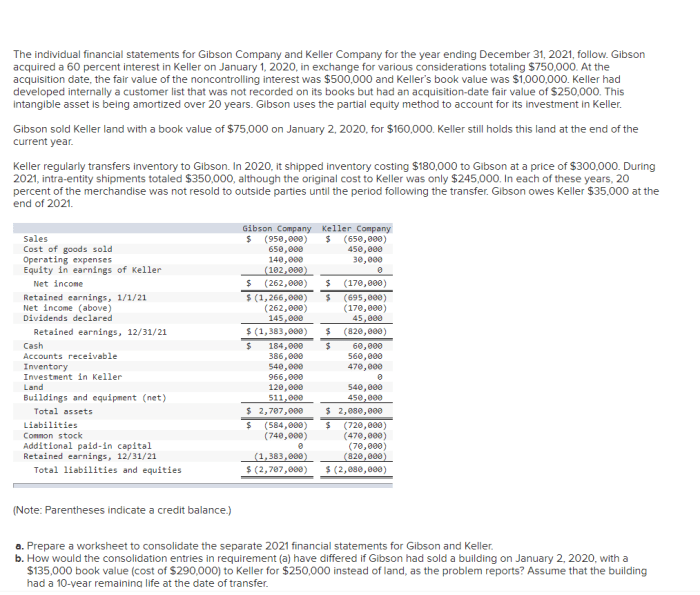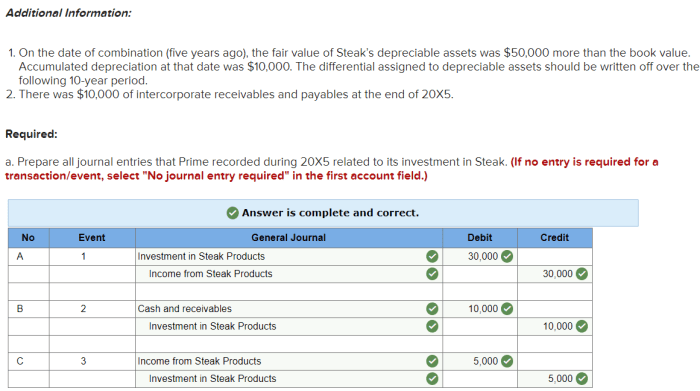Ryan ltd sold equipment with a book value of 80000 – Ryan Ltd’s sale of equipment with a book value of $80,000 marks a significant transaction with far-reaching implications for the company’s financial standing, tax obligations, and future prospects. This comprehensive analysis delves into the accounting, tax, financial, and industry-specific considerations surrounding this transaction, providing valuable insights into its impact on Ryan Ltd’s overall performance and competitive position.
The sale of the equipment, recorded at its book value, has immediate consequences for Ryan Ltd’s financial statements. The transaction will result in a reduction in the company’s asset value and a corresponding increase in its cash balance. Furthermore, the gain or loss on the sale will impact Ryan Ltd’s income statement, affecting its profitability.
Business Transaction Overview
Ryan Ltd. sold a piece of equipment with a book value of $80,000.
Sale of Equipment
The sale of the equipment represents a business transaction in which Ryan Ltd. transferred ownership of the equipment to another party in exchange for a consideration.
Book Value of Equipment Sold
The book value of the equipment is its carrying value on Ryan Ltd.’s financial statements. It is calculated as the original cost of the equipment minus accumulated depreciation.
Accounting Implications

Impact on Financial Statements
The sale of the equipment will impact Ryan Ltd.’s financial statements as follows:
- Balance Sheet:The equipment will be removed from the asset section, and the proceeds from the sale will be recorded as cash or accounts receivable.
- Income Statement:The difference between the book value and the sale price will be recognized as a gain or loss on the sale of equipment.
Journal Entry
The following journal entry can be used to record the sale of the equipment:
Cash/Accounts Receivable $ [Sale Price] Accumulated Depreciation
Equipment $ [Accumulated Depreciation]
Equipment $ [Book Value] Gain/Loss on Sale of Equipment $ [Gain/Loss]
Tax Considerations

Potential Tax Implications
The sale of the equipment may have tax implications for Ryan Ltd. The tax liability will depend on factors such as the tax jurisdiction, the sale price, and the book value of the equipment.
Book Value and Tax Liability
The book value of the equipment may affect the tax liability if the sale price is different from the book value. If the sale price is higher than the book value, Ryan Ltd. may have to pay capital gains tax on the difference.
Financial Analysis: Ryan Ltd Sold Equipment With A Book Value Of 80000
Impact on Financial Performance, Ryan ltd sold equipment with a book value of 80000
The sale of the equipment can have both positive and negative impacts on Ryan Ltd.’s financial performance:
- Cash Flow:The sale will generate cash inflow for Ryan Ltd., which can be used to fund operations or investments.
- Profitability:The gain or loss on the sale of equipment will impact Ryan Ltd.’s profitability.
Industry Context

Industry Benchmarks
The sale of the equipment can be compared to industry benchmarks to assess Ryan Ltd.’s performance. Benchmarks can provide insights into the average sale price and profitability for similar transactions in the industry.
Competitive Position
The sale of the equipment may impact Ryan Ltd.’s competitive position if it affects the company’s ability to produce or deliver goods or services.
Future Implications
Potential Long-Term Effects
The sale of the equipment may have long-term effects on Ryan Ltd., such as:
- Growth and Investment:The proceeds from the sale can be used to fund future growth and investment.
- Operational Efficiency:The sale of old or inefficient equipment can improve operational efficiency and reduce costs.
Query Resolution
What is the book value of an asset?
The book value of an asset is its carrying value on the balance sheet, which is typically its historical cost minus accumulated depreciation and impairment.
How does the sale of an asset at its book value affect a company’s financial statements?
The sale of an asset at its book value results in no gain or loss being recognized on the income statement. However, the asset’s removal from the balance sheet reduces the company’s total assets and may impact key financial ratios.
What tax implications may arise from the sale of an asset?
The sale of an asset may trigger capital gains or losses, which are subject to taxation. The tax liability will depend on the asset’s tax basis, holding period, and applicable tax rates.